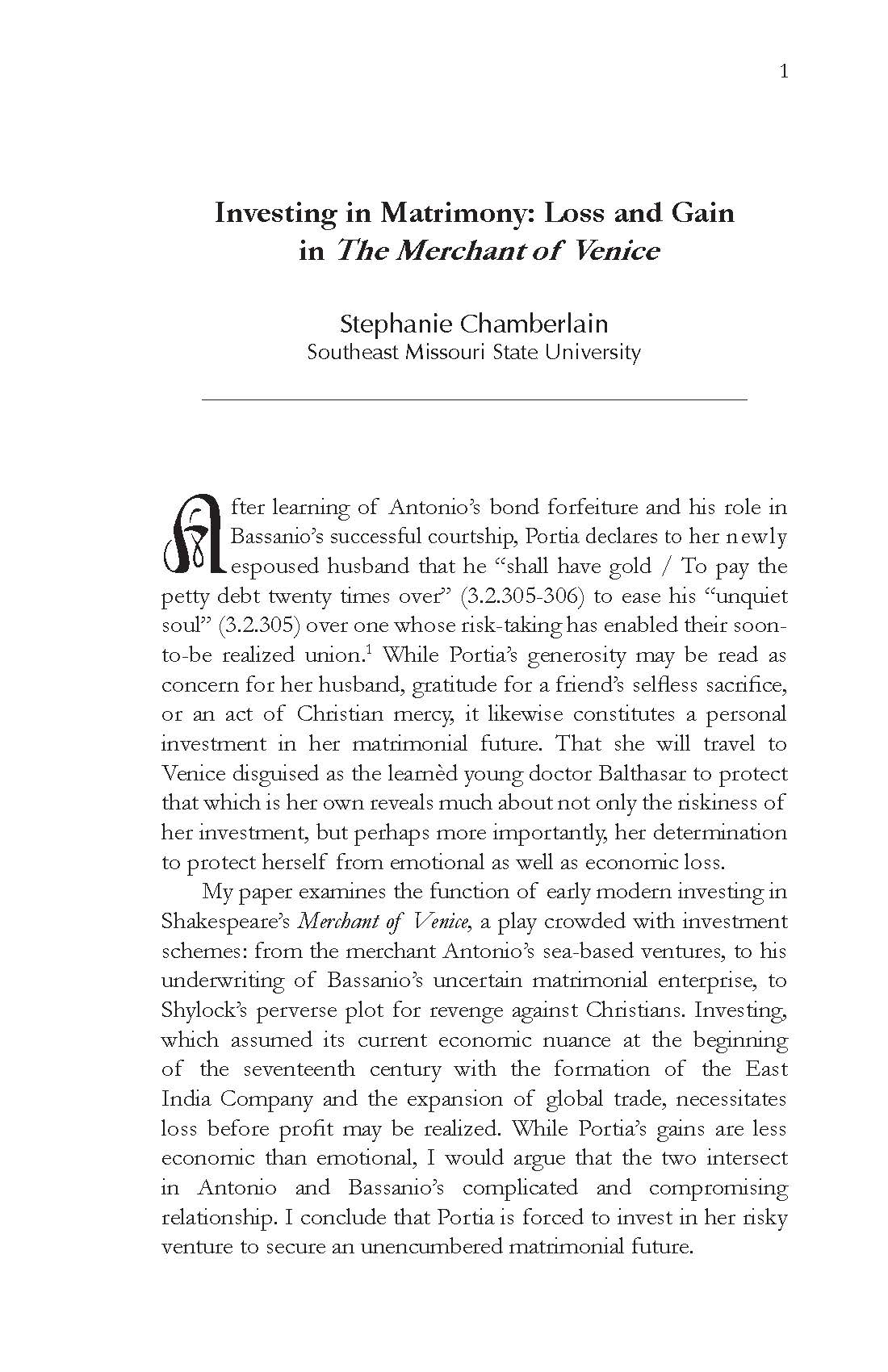Investing in Matrimony: Loss and Gain in The Merchant of Venice
Main Article Content
Abstract
After learning of Antonio’s bond forfeiture and his role in Bassanio’s successful courtship, Portia declares to her newly espoused husband that he “shall have gold / To pay the petty debt twenty times over” (3.2.305-306) to ease his “unquiet soul” (3.2.305) over one whose risk-taking has enabled their soon-to-be realized union.1 While Portia’s generosity may be read as concern for her husband, gratitude for a friend’s selfless sacrifice, or an act of Christian mercy, it likewise constitutes a personal investment in her matrimonial future. That she will travel to Venice disguised as the learnèd young doctor Balthasar to protect that which is her own reveals much about not only the riskiness of her investment, but perhaps more importantly, her determination to protect herself from emotional as well as economic loss.
